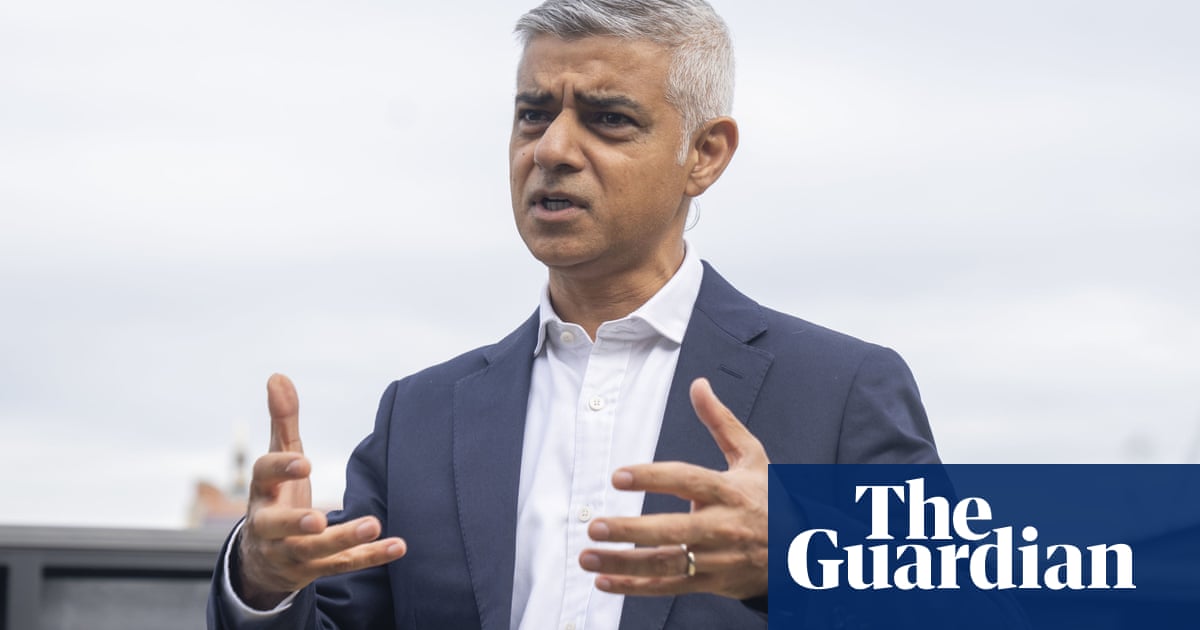
According to Sadiq Khan, the proposal to reduce legal immigration by the government will result in a severe shortage of workers in London. The number of job openings in the hospitality industry is still higher than before the pandemic.
In the year ending June 2023, the UK’s population increased by 672,000 due to net migration. Nearly half (48%) of the foreign-born population in the country resides in London or the south-east of England.
Last week, the government declared plans to decrease net migration numbers by raising the required “general” salary limit for individuals applying for long-term work visas and for partners of British citizens or settled individuals who want to relocate to the UK. The salary thresholds for both categories will be raised from £26,200 to £38,700.
The government plans to prevent care workers from bringing their dependents to the UK and raise the immigration health surcharge by 66%, from £624 to £1,035 annually. This surcharge grants individuals access to the NHS.
The economic effects on the British economy have not been released by ministers, but according to the Greater London Authority’s analysis, crucial sectors of the London economy that bring in billions in revenue could face significant understaffing.
According to the evaluation, approximately 460,000 out of the 1 million individuals employed in the fields of hospitality, healthcare, arts, and construction in the capital are non-UK citizens. These changes are projected to impact nearly half a million of these workers.
Unless they have obtained indefinite leave to remain (ILR), all individuals will be subject to increased health fees. Non-citizens who earn significantly less than the updated skilled worker threshold of £38,700 are at risk of losing their legal status in the UK.
Khan, who has been London mayor since 2016, described the policies as “misguided” and said a failure to train up the domestic workforce was likely to leave many London businesses without the staff they need in the years to come.
He stated that London is the best city in the world due to the joint efforts of immigrants and trained British workers across generations. He emphasized that migrants play a crucial role in our economy and public services, such as managing care homes, bars and restaurants, and contributing to our world-renowned arts and creative industry.
“Efforts must be made to provide British workers with the necessary skills, as it is crucial for their development. However, the government must acknowledge that the recent immigration policies could result in a serious shortage of employees. This will greatly impact public services and the economy, not only in London but throughout the entire UK.”
According to the analysis, over half (58%) of the hospitality employees in London are not UK citizens. Proposed changes such as raising the required salary, increasing healthcare fees, and limiting the ability for UK citizens to bring their non-UK spouses to the country could have a significant impact on at least 250,000 hospitality workers in London. This may result in challenges in hiring for roles such as chefs and restaurant staff.
By September, the sector had seen a total of 24,185 new online job postings for the top 10 roles in hospitality, a significant increase from the 15,490 postings in January 2019.
It is estimated that nearly 40,000 individuals from outside the UK are employed in London’s arts, recreation, and entertainment industry, making up almost 40% of the total workforce. A significant portion of these workers earn less than the revised threshold of £38,700, though the exact number is currently unknown. The median salary for this sector is approximately £24,000. In September, there were 12,925 online job postings for the top 10 positions in the creative industries in the city.
It is reported that non-UK employees make up over 40% of the workforce in the fields of health and social care. While care workers and senior care workers are excluded from the rise in salary threshold, other alterations are predicted to impact approximately 200,000 individuals in this industry in London.
The prohibition of care workers bringing their dependants to the UK is predicted to greatly impact those employees. The amount of job listings for essential healthcare and social care positions online is still significant at 11,334, similar to the numbers in 2018.
Around 40% of individuals employed in the construction field are not from the United Kingdom. The suggested alterations to the minimum wage requirements for visas are predicted to affect roughly 60,000 laborers. In September, there were 6,246 job postings online for the leading 10 positions in construction, following a decline in the amount of EU citizens working in the industry.
The latest health secretary has emphasized that care providers are generally at ease with the government’s proposal to prohibit overseas care workers from bringing their dependents into the UK. This is despite concerns that the policy will worsen the already severe shortage of staff in the sector.
During a session with the Commons health and social care committee, Victoria Atkins stated that the social care minister, Helen Whately, had confirmed to her that the social care sector is aware and generally at ease with the policy.
She stated that government officials were certain that there will continue to be a high demand from overseas for caregivers to come to the UK. Steve Brine, the Conservative chair of the committee, interrupted to mention that the care industry currently has 152,000 job openings.
Previously, Unison has cautioned that the government’s alterations could result in complete catastrophe for the NHS and social care.
The Home Office stated that the government will release its evaluation of the financial consequences of its recent measures, but employers should not view immigration as a substitute for better wages and working conditions for domestic workers.
A representative stated: “Due to the pandemic, we are still experiencing incredibly high levels of immigration. As a result, the prime minister and home secretary have revealed a proposal to significantly decrease migration levels, combat exploitation of the system, and achieve the largest reduction in net migration to date.”
Source: theguardian.com


